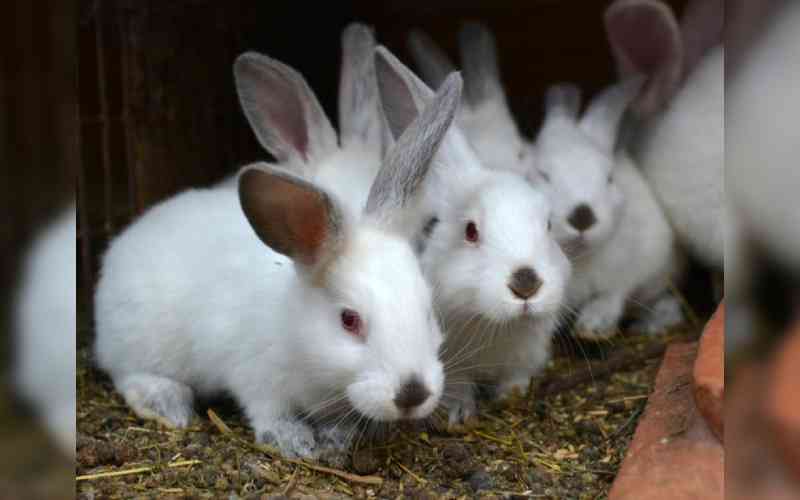
For a long time, rabbits were taken to be a boys' affair. The tide is now changing as commercial rabbit farming is becoming a reliable source of income. In a previous article, I shared tips on how to start and run this business. In this article, I will guide you on how to raise the young from birth to maturity. A couple of days before giving birth the doe with good mothering ability will start to make a nest by collecting hay in her mouth. She then pulls hair from her chest and under her neck to line the nest. She will pull out more hair after giving birth to cover the kits.
To enhance the survival of a large litter of kits, observe the following: